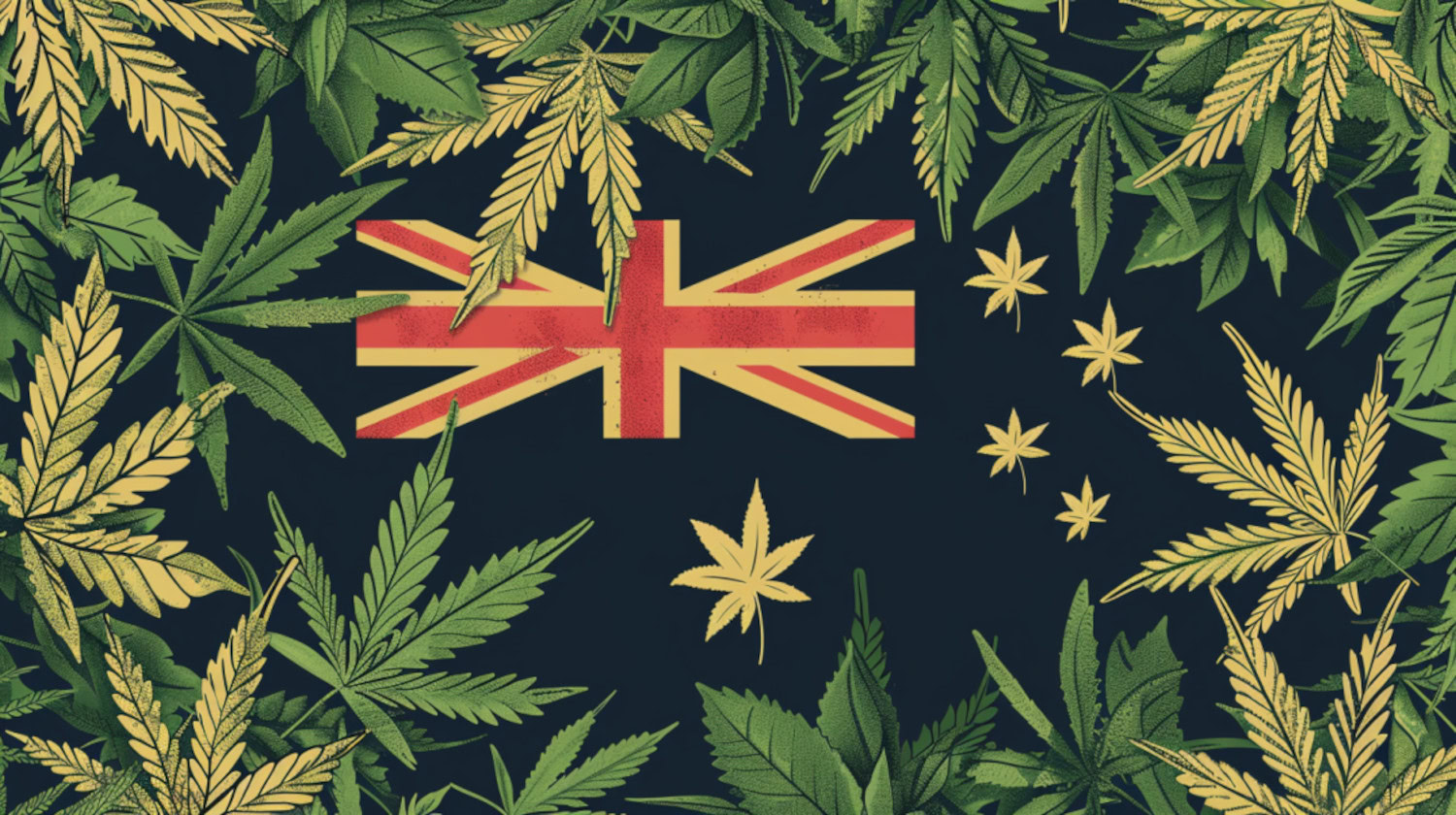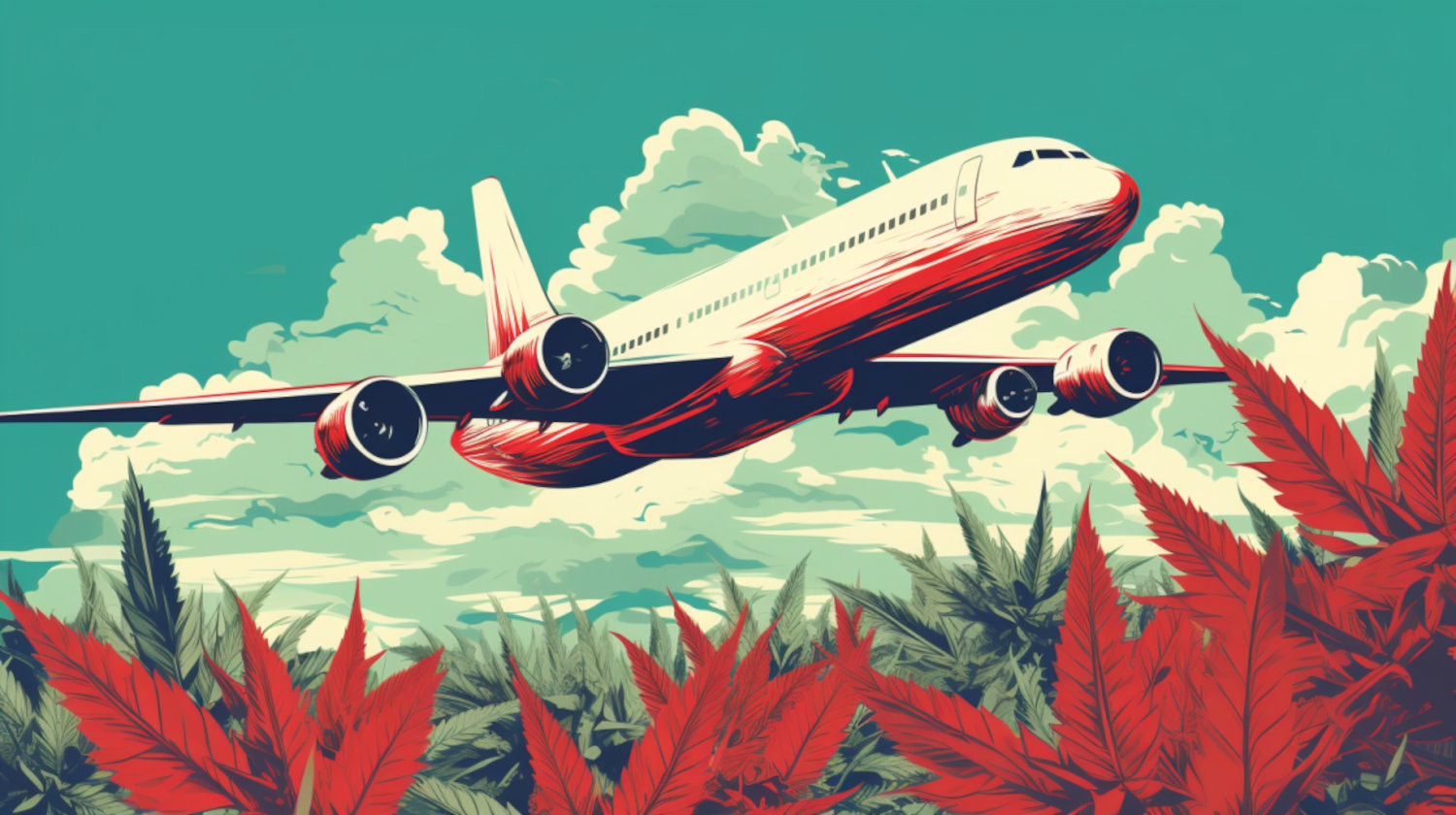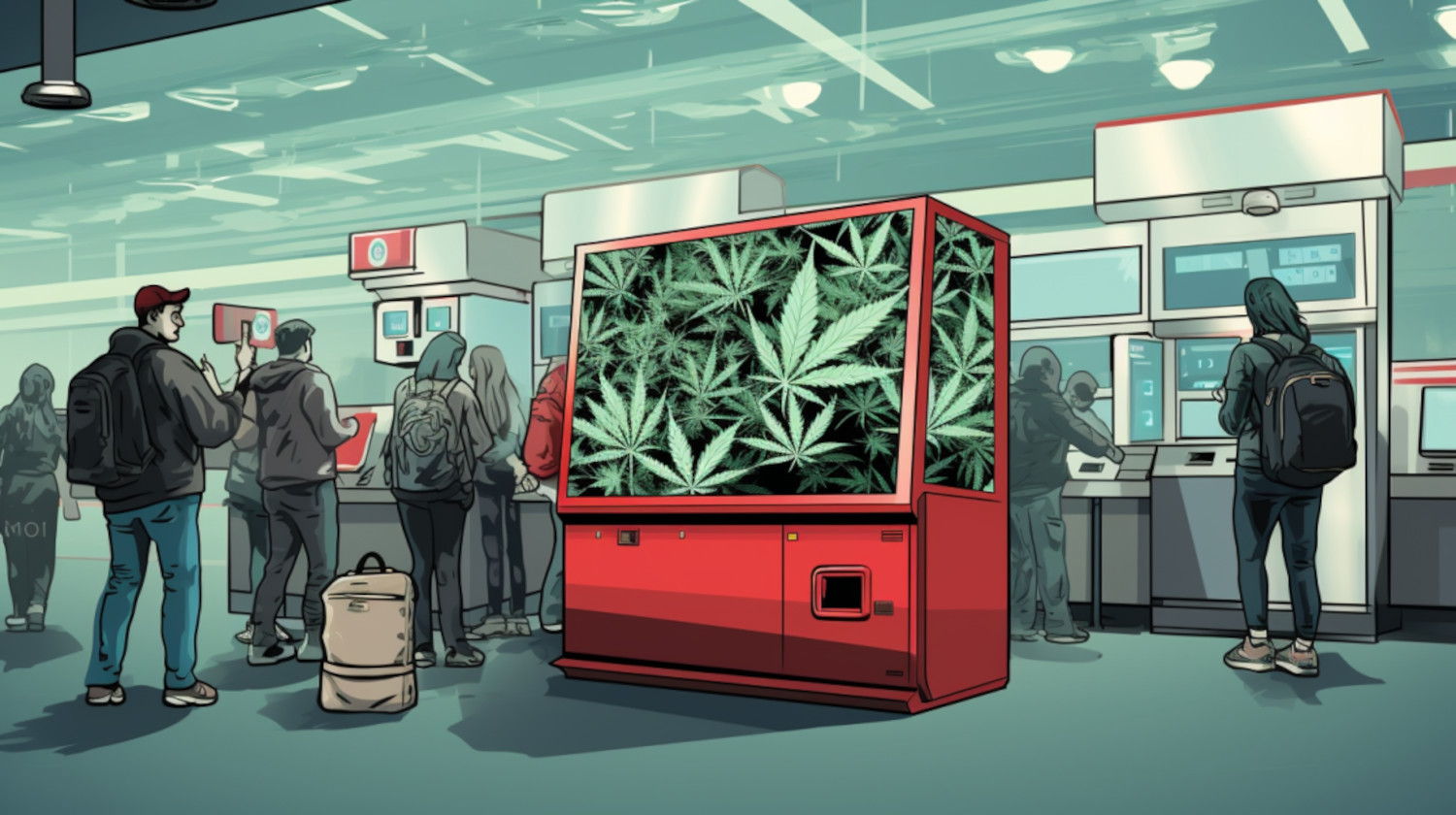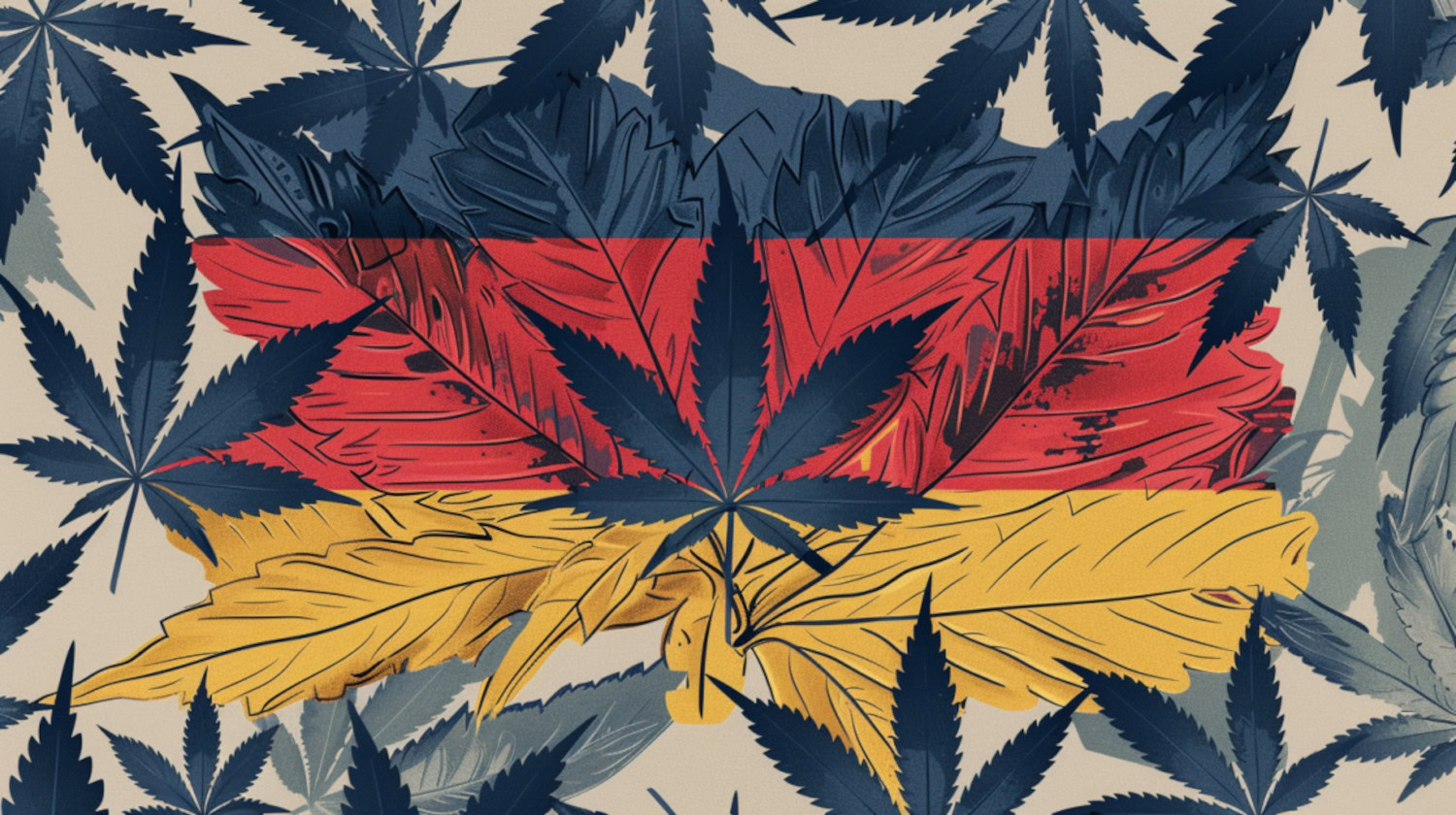In This Article
- Is Medical Marijuana Legal in Australia?
- Can Traveling Patients Access Medical Cannabis in Australia?
- Is Recreational Cannabis Legal in Australia?
- When Will Weed Be Legal in Australia for Recreational Purposes?
- What are the Limitations on Possession of Cannabis in Australia?
- Is CBD Legal in Australia?
- Where Can I Buy Cannabis in Australia?
- What Types of Cannabis Products are Available in Australia?
- Can You Grow Cannabis in Australia?
- Can I Travel With Cannabis to Australia?
- References
Key Takeaways
- Medical cannabis is legal in Australia.
- Recreational cannabis remains illegal in Australia but is decriminalized in the ACT.
- You can travel within Australia with legally prescribed medical cannabis, but you cannot travel to Australia with cannabis.
Australia is a haven for travelers looking to visit places like the Great Barrier Reef, Kakadu National Park, and the Royal Botanic Garden. Many tourists wonder: Is weed legal in Australia?
The Australian Government has limited access to cannabis. While it is accessible via licensed doctors, there are restrictions.
Is Medical Marijuana Legal in Australia?
Australia’s Medicinal Cannabis Compassionate Use Scheme was introduced in 2014. The legislation states that registered patients with a doctor-diagnosed terminal illness can legally possess lawfully prescribed medical cannabis.
In 2016, the Federal Government of Australia revised the Narcotic Drugs Act of 1967 to permit cannabis cultivation for medicinal or scientific purposes. Medicinal cannabis was officially legalized in Australia in October 2016, which enabled organizations to produce pharmaceutical cannabis products and conduct research. However, it is still illegal to cultivate cannabis for personal use, except in the federal Australian Capital Territory (ACT).
In 2017, the Australian Therapeutic Goods Administration (TGA) rescheduled cannabis, which allowed doctors to start prescribing cannabinoids to patients, contingent on federal and state-based measures. In Australia, medicinal cannabinoids are legally prescribed by medical practitioners in accordance with the TGA’s Special Access Scheme.1
Can Traveling Patients Access Medical Cannabis in Australia?
All States in Australia have legalized cannabis for medical purposes. Traveling patients with a legal prescription from a licensed doctor or healthcare practitioner can lawfully venture across different states and territories with flower, oils, capsules, and more.
Medical cannabis patients in Australia who obtain prescribed vaporizable flower must limit their use to one of the featured devices on the Australian Register of Therapeutic Goods (ARTG) list.
Driving while intoxicated is not acceptable in Australia, regardless of substance type.
Is Recreational Cannabis Legal in Australia?

Per the laws and regulations in Australia, recreational cannabis is currently prohibited under federal law. Consuming, growing, selling, and using cannabis remains illegal at the state and territory levels. Although cannabis in Australia is still a prohibited substance, legislative trends are signaling a change.
When Will Weed Be Legal in Australia for Recreational Purposes?
The reporting date for the country’s Legalizing Cannabis Bill 2023 is May 31, 2024. Unfortunately, the bill did not make it out of committee, with the consensus recommendation stating that Parliament not vote on the bill.
The bill's approval would have established the Cannabis Australia National Agency as a statutory agency to register cannabis strains and oversee cultivation, plant ownership, manufacturing and selling, product development, imports and exports, and cannabis cafe operations.
What are the Limitations on Possession of Cannabis in Australia?
Cannabis remains illegal across Australia for recreational purposes; however, like in the United States, there are specific areas looking to decriminalize cannabis use.
Within the federal Australian Capital Territory - Australia's equivalent to Washington D.C - personal use of cannabis has been decriminalized, allowing individuals aged 18 and older to possess 50 grams of dried cannabis. Alternatively, the ACT imposes a 150-gram limit on fresh cannabis. However, these possession limits apply to individuals within ACT, and recreational sales are illegal; possession is just decriminalized.
Regardless of a person’s intentions for using cannabis in Australia, they must abide by the following rules:
- Refrain from smoking or consuming cannabis in a public place.
- Always consume cannabis within a reasonable distance from children or young people (especially smokable cannabis).
- Avoid cultivating cannabis plants using artificial methods or hydroponics.
- Conceal clearly labeled cannabis storage items beyond the reach of young children.
- Grow cannabis plants away from publicly accessible locations.
Are those limits the same for non-residents?
The ACT doesn't specifically clarify whether or not the limitations on recreational cannabis apply to non-residents.
Is CBD Legal in Australia?
Medical cannabis in Australia is legal in the form of over-the-counter (OTC) CBD oil for up to 150mg per day. If it is not obtained from a pharmacist, patients must get a prescription from a healthcare professional. Based on the policy outlined by The Pharmacy Guild of Australia, CBD must constitute 98% (or more) of the product's total cannabinoid content, and the THC should not exceed 1%.
Where Can I Buy Cannabis in Australia?

Accessing medical cannabis in Australia is only possible with a prescription from a registered medical practitioner.
Before the licensed health professional can legally prescribe cannabis, they must first conduct a thorough health assessment. It is essential to speak honestly.
Nabiximols is the one registered medical cannabis treatment in Australia. Only Australian-registered medical practitioners can contact the TGA to request access to unapproved medicines on the patient's behalf. If approved, cannabis-based specific drugs can be imported and supplied via the Special Access Scheme (SAS Category A or B).
The doctor can also apply as an Authorized Prescriber (AP). Per the applicable state or territory laws, approval to prescribe patients registered cannabis medicines should also be obtained. Patients should be aware that medicinal cannabis rules depend on the state and territory in which they reside.
Unlike in the U.S., it is not possible for cannabis consumers (medical or recreational) to simply walk into dispensaries and purchase weed.
Speaking with a doctor beforehand is essential. State and TGA requirements must be satisfied before the doctor can arrange to dispense the product with a pharmacy. It's not advisable to fly to Australia with cannabis.
The Office of Drug Control website highlights a list of companies that have obtained the necessary authorization to import medicinal cannabis into Australia for supply purposes.
For further information on subjects like, “Is weed legal in NSW?” and “Is weed legal in Canberra?” visit the TGA website.
What Types of Cannabis Products are Available in Australia?
A variety of cannabis products are imported into Australia from Canada or Europe. The list of products includes oil cannabis extracts, solvent extracts (e.g., tinctures,) raw cannabis (which can be vaporized but not smoked for medical purposes,) and oro-mucosal sprays.
Oils may be infused into edibles or vaporized in a cartridge. Raw cannabis flower is authorized to be vaporizable with a dry herb vaporizer or decarboxylated and cooked into edible form. Some transdermal products (e.g., cannabinoid-containing patches or topical creams and gels) are also being manufactured.
Can You Grow Cannabis in Australia?

Does Australia allow cannabis cultivation? Yes, but with limitations.
Australia’s government permits cannabis cultivation for medicinal and scientific research purposes. The national scheme allows growers to cultivate and manufacture the plant into research-specific products for patients' use or clinical trials in compliance.
Research purposes aside, certified federal ACT members have been legally able to possess, consume, and grow cannabis since 2020. The law allows residents to produce a maximum of two cannabis plants per person or four per household. The Office of Drug Control imposes certain cultivation restrictions.
The ODC oversees issues pertaining to cannabis cultivation regulation and licensing in Australia. Controlling yield quantities and strains are two primary goals of the license and permit system, which enables the Australian Government to submit reporting responsibilities to the International Narcotics Control Board.
For further information on Australia’s medical cannabis cultivation, manufacture, importation, and exportation, visit the ODC website.
Can I Travel With Cannabis to Australia?
If you receive a legal medical cannabis prescription from a qualified doctor or healthcare practitioner, you can travel between each Australian state and territory with your medicine.
Individuals who wish to travel with medical cannabis for personal use can carry a maximum of three months’ supply into the country via the individual themself, a carer, or a parent.
Anyone venturing into Australia with prescribed medical cannabis should retain the original packaging with the pharmacy label and present airport staff with a prescription letter and valid photo ID that matches the patient name on the medicine label. However, it may be best to avoid traveling into the country with cannabis-containing medicines to prevent unnecessary searches.
No specific guidelines clarify whether or not you must carry medical cannabis in Australia in your cabin luggage or checked luggage.
It is important to remember that these rules may only apply if you have a cannabis-based medicine prescription, like Epidolex, not a doctor’s recommendation or state-issued medical card.
References
- Castle DJ, Strauss N, Norman A, Bonomo Y. Medical Marijuana: The Australian Experience. Mo Med. 2019;116(4):270-273. ↩︎
The information in this article and any included images or charts are for educational purposes only. This information is neither a substitute for, nor does it replace, professional legal advice or medical advice, diagnosis, or treatment. If you have any concerns or questions about laws, regulations, or your health, you should always consult with an attorney, physician or other licensed professional.




